Island Impact Expedition: Investigating sources and pathways of iron around South Georgia
Joséphine Anselin
British Antarctic Survey and at the University of Cambridge
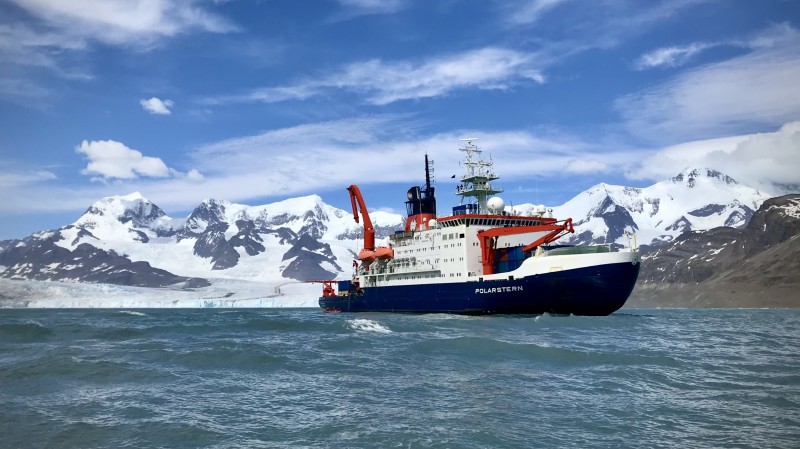
Caption: The Alfred Wegener Institute (AWI) Polarstern Research Vessel on a beautiful sunny day in Cumberland Bay, South Georgia
On a windy afternoon in November 2022, together with 49 other scientists from 14 different institutions, I boarded the German icebreaker Polarstern in Punta Arenas, Chile. As we were getting shuttled from the pier to the vessel on small boats, I couldn’t stop smiling. I was about to embark on my first ever oceanographic research cruise, the PS133/2 “Island Impact” expedition!
The main aim of the cruise was to investigate sources and transport pathways of iron around South Georgia and downstream of the archipelago along the flow of the Antarctic Circumpolar Current. Micronutrients like iron are required to fuel primary productivity. Extensive phytoplankton blooms are known to occur in the vicinity of South Georgia, but the mechanisms that supply iron to these areas of high primary productivity (e.g. entrainment of deep waters into the oceanic surface layer, rock weathering, glacial melt, submarine groundwater discharge) are still poorly constrained by observations. Over the next 30 days we would be sailing from Punta Arenas to Cape Town via South Georgia, collecting data along the way, to help better quantify the relative importance of these processes on the presence of blooms.
As part of the Physical Oceanography team, my main role onboard was to operate the CTD rosette used for hydrographic measurements and water sample collections, and the ‘ultra-clean CTD’, a modified CTD used for trace metal sampling. Prior to this cruise I had never been responsible for running this type of equipment, so in the beginning I was a bit nervous. But after a few casts, and thanks to the guidance from the very experienced Polarstern crew and from my CTD teammate and brilliant teacher Annika Oetjens, I started feeling more confident. In the end, we performed 38 casts, collecting over 10,000 liters of water samples.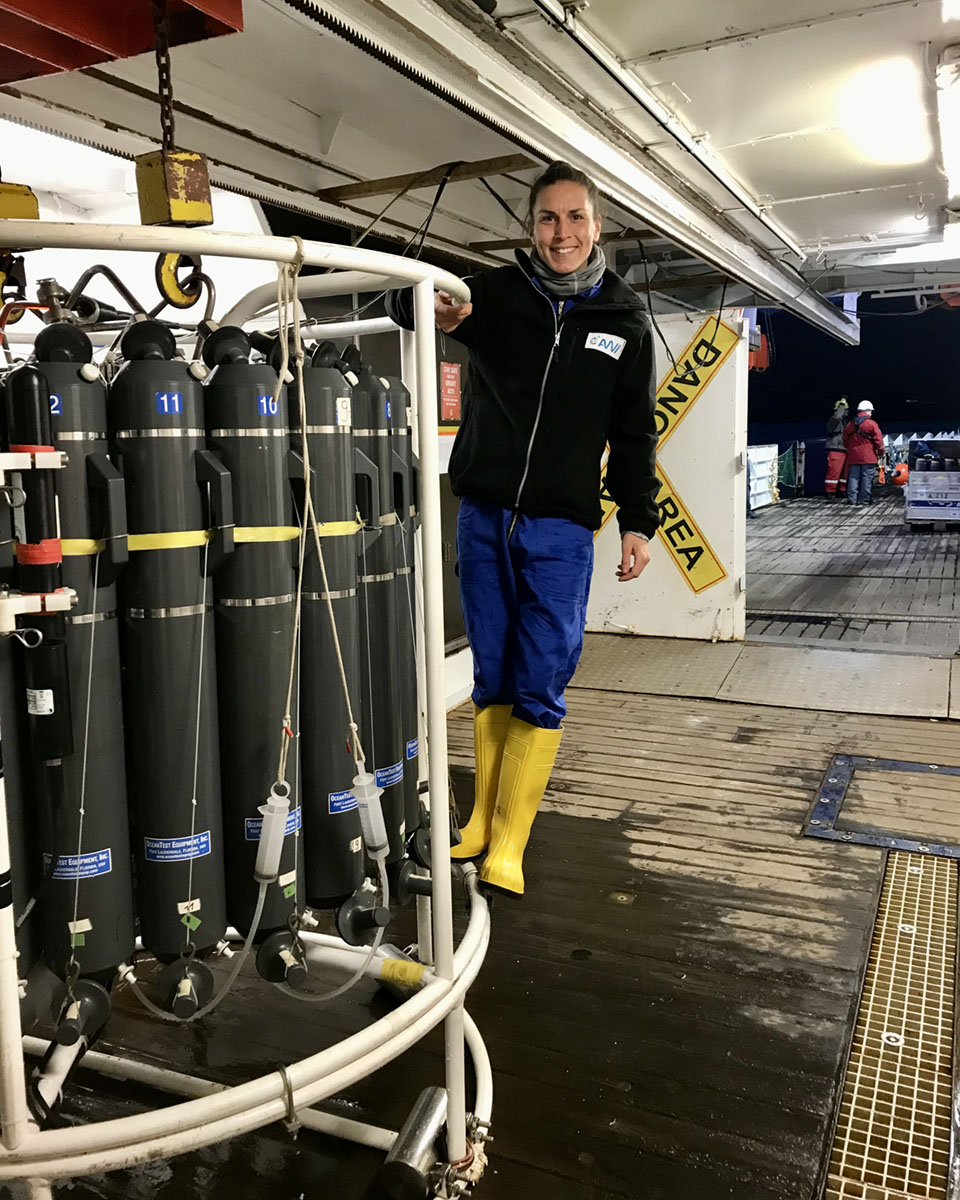
Caption: Posing with my favourite instrument on the ship, the CTD Rosette
One of the main study areas of the expedition was Cumberland Bay on the northeast coast of South Georgia. Cumberland Bay is the largest fjord on the island, and it is split into two arms: East Bay and West Bay. Meltwater from Nordenskjold Glacier, terminating at the head East Bay, is discharged into the fjord at the seabed via subglacial channels. Collecting hydrographic data and water samples as close as possible to the glacier termini would therefore be invaluable to help us better understand the influence of subglacial discharge on iron supply. Because of the shallow water depth close to the glacier the Polarstern wasn’t able to access the target location, preventing us from deploying the ship’s CTD system. So instead, we boarded two zodiacs and made our way to the edge of the glacier to collect water samples directly from the bottles and deploy a hand-held CTD. This part of the expedition was a real highlight for me. Given that my PhD focuses on ice-ocean interaction I was familiar with the physical processes taking place at a glacier termini, but up until that point I had only studied these mechanisms using numerical modeling. Seeing the change in the water color as a result of meltwater addition, hearing the sound of melting ice blocks floating on the surface (it sounds like a camp fire!) and witnessing calving of ice bergs, all while deploying a 45 kg instrument from an inflatable boat being rocked by the waves, gave me a real appreciation for the environment being studied. It also made me realise how challenging it can be to generate good quality observational datasets, something that I feel is often underappreciated, particularly among the ocean modelling community. After about 4 hours and 13 CTD casts, we were called back by the Chief Scientist and returned to the Polarstern, with sore arms, but very happy.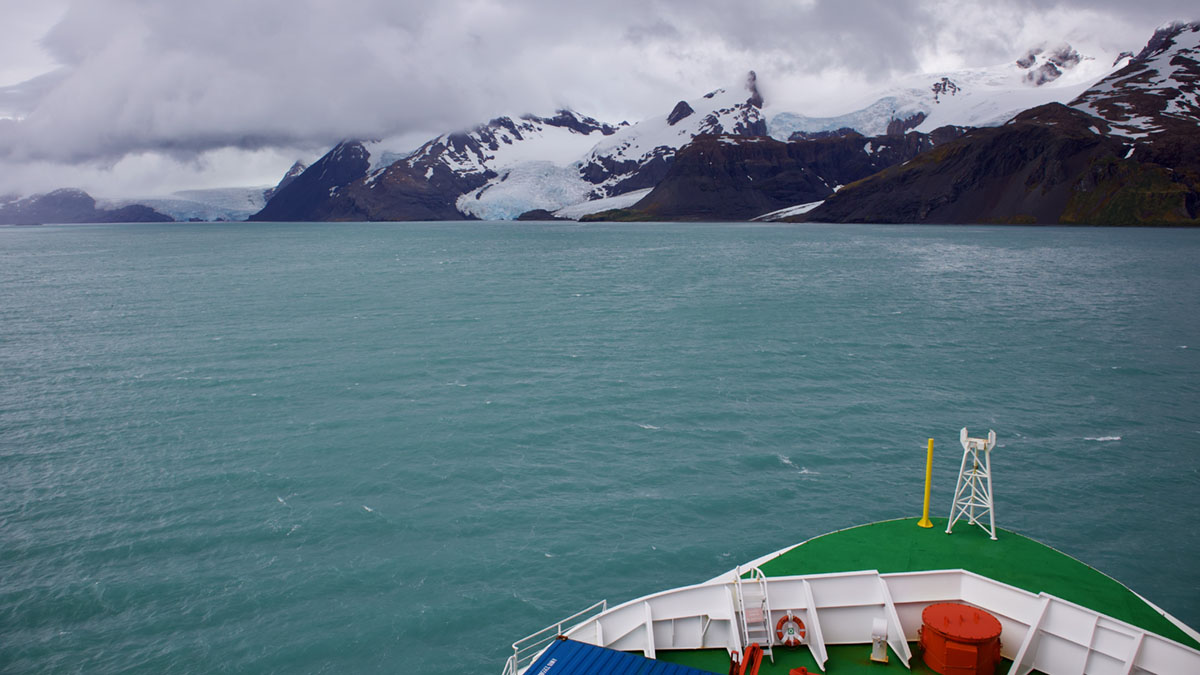
Caption: Arriving in South Georgia onboard the RV Polarstern
In addition to gaining practical oceanography skills like for example operating a CTD, this cruise also gave me the opportunity to get to know scientists and crew members from a wide range of backgrounds and disciplines, all sharing the same passion for the polar regions. I am so grateful to have had the opportunity to be part of this multidisciplinary community onboard Polarstern, and I would like to thank the Challenger Society for awarding me the Student Travel Award which allowed me to participate in this unforgettable voyage.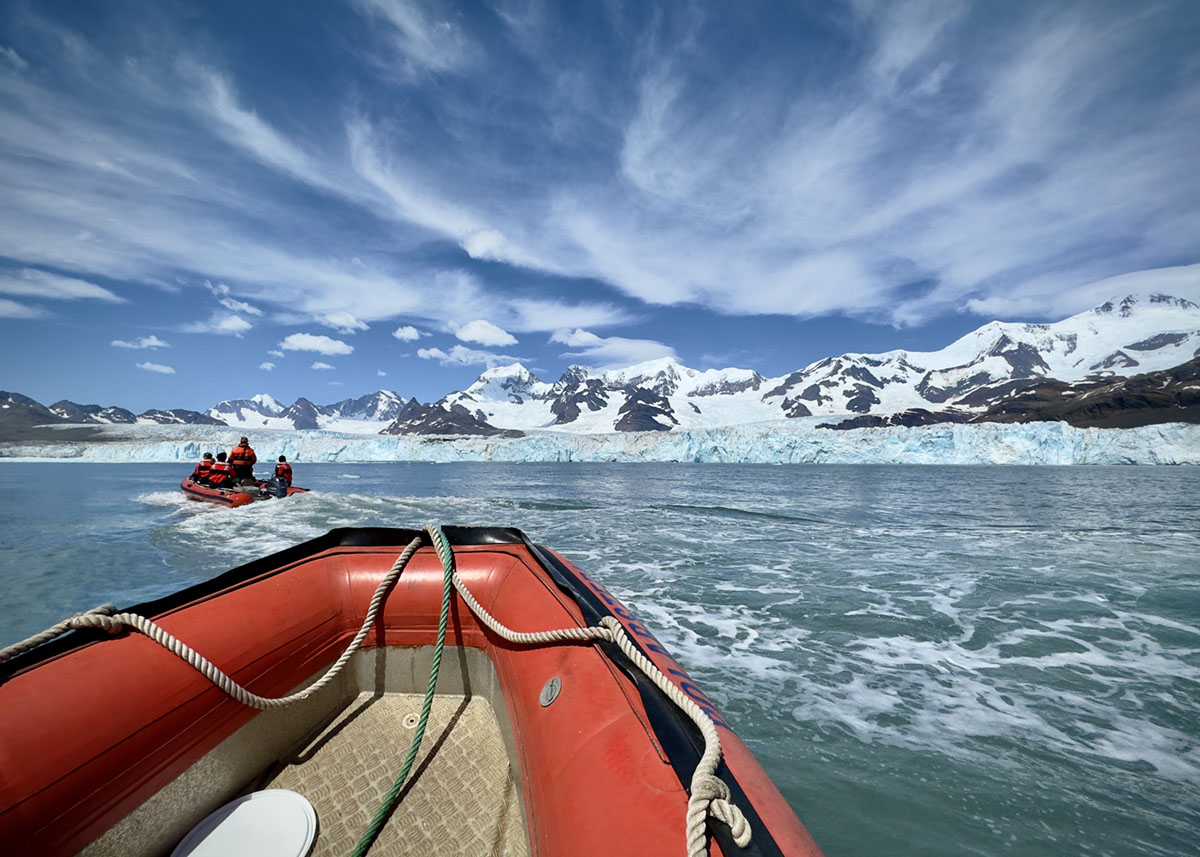
Caption: A snapshot from our hand-held CTD deployment next to Nordenskjold Glacier terminus
Author Profile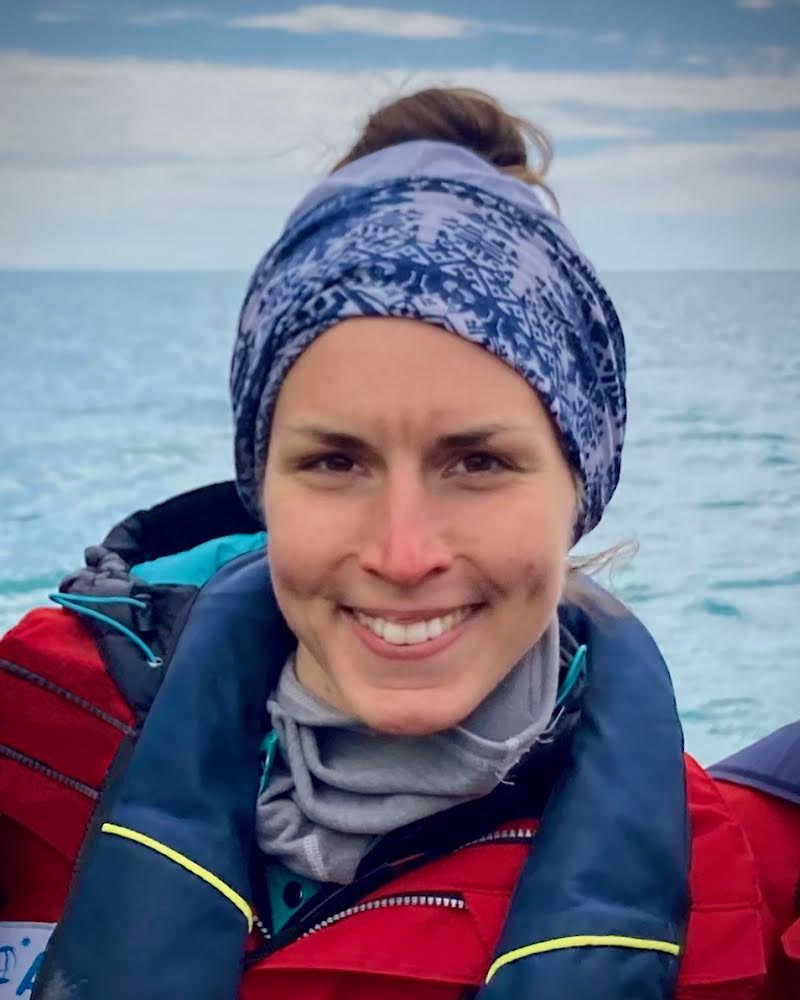
Joséphine Anselin is a PhD student at the British Antarctic Survey and at the University of Cambridge. She is particularly interested in ice-ocean interactions and her current research focuses on improving the representation of ocean-driven melting of Antarctic ice shelves in large-scale ocean models used for global sea level projections. Prior to starting her PhD, Joséphine completed a Masters in Engineering Science at the University of Oxford and worked as an Engineer in the Energy Industry. In 2020 she returned to academia to pursue an MSc in Physical Oceanography at Bangor University in North Wales.
Latest News
Royal Society Publishing Photography Competition 2025
Please see a message from the Royal Society below:
We are delighted to announce that the 2025 Competition is now open for entries until 15 August for a chance to win £1000! The competition celebrates the power of photography in conveying the wonder of science happening all around us and photographs can be submitted in the categories of: Astronomy, Behaviour, Earth Science and Climatology, Ecology and Environmental Science, and Microimaging.
The competition is free to enter and open to anyone studying or working in science at graduate level or above. Category winners will receive a one-year membership to the Royal Photographic Society and the overall winner will receive a grand prize of £1,000. Find out more: https://bit.ly/RSPphotocomp
October 2025 MEDIN Workshop: Marine Data Management, Governance and the MEDIN toolset
The Marine Environmental Data and Information Network (MEDIN) are pleased to announce that registration is now open for the next occurrence of our popular free online training workshop: ‘Marine Data Management, Governance and the MEDIN toolset’ on the 13th – 17th October 2025 on OceanTeacher Global Academy.
Marine Data Management, Governance and the MEDIN toolset
The Marine Environmental Data and Information Network (MEDIN) and OceanWise are delighted to invite you to attend our popular free online training workshop: ‘Marine Data Management, Governance and the MEDIN toolset’ on the 19th – 23rd of May 2025.
